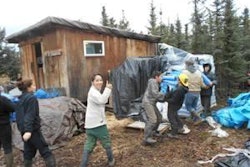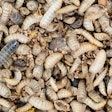The US Food and Drug Administration (FDA) is still investigating the illnesses and deaths of several hundred dogs that began in 2007 and are suspected to be the result of contaminated chicken jerky pet treats manufactured in China.
The FDA continues to seek leads from veterinarians and pet owners-roughly 1,500 reports have some in since an appeal for information in the fall of 2013. "We are frustrated," said Martine Hartogensis, who oversees the FDA's ongoing investigation. "It's been a long, winding, twisting road . . . [But] we haven't given up."
The FDA says it has tested more than 1,200 jerky treats, looking for Salmonella, mold, pesticides, toxic metals, outlawed antibiotics, nephrotoxins and other contaminants. Federal officials have inspected factories in China that manufacture chicken jerky products for U.S. companies and sought input from academics, state and university research labs, foreign governments and the petfood industry. In spite of all that, the cause of the illnesses has not yet been found.
According to the FDA, the illnesses overwhelmingly affect dogs but some cats have also been made ill. The majority of complaints involve chicken jerky but also include treats in which chicken or duck jerky is wrapped around dried fruit, sweet potatoes or yams. Officials said there's no clear pattern based on breed or geography-pets have been sickened in every state, as well as in countries such as Australia-and the problems don't seem specific to any particular brand or manufacturer.
The FDA said it is determined to find answers. "They want to solve it more than anything," said Hartogensis. "I'm confident we'll get there. It's a really complicated issue, but we've got a lot of great people working on it. And I think we're getting closer."
















